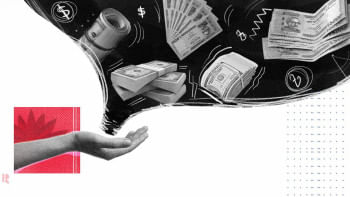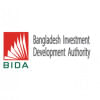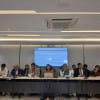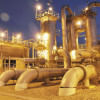Policy choices for Bangladesh amid rising gas prices

The Bangladesh Energy Regulatory Commission (BERC) recently announced a 33 percent increase in gas prices for new industrial and captive power consumers. The tariff for new industrial connections rose from Tk 30 to Tk 40 per cubic metre, while captive power users saw the rate increase from Tk 31.5 to Tk 42 per cubic metre. This hike is likely to affect energy-intensive sectors, such as textiles and RMG, ceramics, steel, fertiliser production, and power generation. Industries will encounter increased production costs, reduced competitiveness, and pressure on profit margins. This could potentially lead to reduced industrial output and have a negative impact on the overall economic health. For instance, the textile and RMG sector, which contributes to export earnings, relies extensively on natural gas. Higher gas costs will increase production costs, which will make Bangladeshi exports less competitive globally, particularly against regional competitors such as Vietnam and Cambodia, which also export apparel products.
This increased operational cost will likely dampen domestic investment prospects. Smaller enterprises, already operating on thin margins, will face financial stress, which may lead to closures or downsizing of their businesses. This will cause job losses. Additionally, continuous hikes in utility costs might slow down economic growth.
From the perspective of attracting FDI, the gas price hike poses a significant challenge. Stable and predictable utility costs are crucial for attracting FDI. Frequent adjustments in energy prices due to fiscal pressures might portray Bangladesh as an unstable investment destination. This again can affect the competitiveness and attractiveness of the country to foreign investors. Since the cost of doing business significantly influences investment decisions, persistent uncertainty in energy pricing could potentially redirect investments to more stable economies.
The gas price hike aligns with the IMF's conditions for a $4.7 billion loan, which emphasises reducing energy subsidies to improve Bangladesh's fiscal discipline. The country's substantial energy subsidies have placed considerable stress on its fiscal resources, contributing significantly to its budget deficit. The IMF's loan conditions explicitly emphasise subsidy reductions to enhance fiscal discipline and ensure economic stability. Hence, the government's flexibility in maintaining the previous gas prices is limited. Continuing with the existing gas prices without adjustments could risk the financial support essential for macroeconomic stabilisation.
If Bangladesh opted not to increase gas prices, alternative mechanisms would be required to manage the burgeoning subsidy bill. These measures are short-term, medium-term, and long-term in nature. One of the important options includes improving operational efficiencies in state-owned enterprises, minimising systemic wastage, and gradually phasing in targeted subsidies rather than implementing abrupt universal cuts. Additionally, adopting market-based pricing mechanisms, similar to those employed in many countries—both developed and developing—could help gradually rationalise subsidies without severely disrupting industrial production and the investment climate. Given that the overall inflation has been very high for about three years and non-food inflation is currently higher than food inflation, there should be targeted subsidies for the vulnerable population instead of blanket subsidies.
Though the IMF's stipulation against its loan to Bangladesh has acted as a catalyst for the gas price increase, the government needs to adopt various expenditure-reducing measures as part of broader structural reforms aimed at fiscal consolidation. Bangladesh's foreign exchange reserve situation intensifies the need to be cautious in maintaining healthy reserves. As of March 2025, the country's forex reserves stood at $25.51 billion, with net reserves at $20.38 billion under the IMF's Balance of Payments Manual 6 (BPM6) methodology. With significant outstanding dues to international power and energy suppliers, payable in dollars, the government's decision was largely pragmatic. Maintaining subsidies without commensurate fiscal adjustments would further erode the forex reserves and weaken economic stability.
However, to bolster the forex reserves, Bangladesh should explore multiple avenues beyond immediate gas price hikes. Prioritising export diversification beyond RMG into sectors like electronics, pharmaceuticals, leather, agro-processing, and ICT can help generate stable, diversified export revenue. Remittance is another crucial component of the foreign currency inflows. This can also be enhanced by remittance facilitation and incentivisation, such as offering better banking channels and financial products for expatriates.
An important way to manage the gas crisis is the exploration and development of domestic gas fields, which the previous government has repeatedly overlooked. Historically, Bangladesh has been slow in exploiting domestic resources due to bureaucratic inertia, insufficient investments, technological limitations, and at times, vested interests resisting market liberalisation. For instance, despite geological surveys indicating significant potential offshore and onshore gas reserves, exploration and drilling activities have remained limited and sporadic. This cautious approach, partly driven by concerns about substantial upfront capital requirements, has paradoxically heightened the country's dependence on costly LNG imports, which further strain the forex reserves.
To finance gas exploration activities, the government could leverage public-private partnerships (PPPs), and attract international oil companies (IOCs) with attractive but fair terms. Successfully utilised PPP models and international collaborations can bolster domestic gas production and reduce import dependency.
In the short and medium terms, the government must adopt comprehensive policy measures beyond gas price adjustments. These measures include implementing energy efficiency initiatives, incentivising industries to adopt renewable energy solutions, and reducing systemic inefficiencies within the energy sector. For instance, upgrading outdated industrial equipment, improving insulation in factories, and promoting solar rooftop installations could significantly reduce the overall gas consumption.
Globally, there are examples where countries have successfully navigated similar challenges. For example, Vietnam effectively balanced energy subsidies with targeted investments in renewable energy. This has helped the country reduce its dependency on costly fuel imports. Indonesia has adopted a phased subsidy reduction complemented by substantial investments in renewable energy and domestic resource exploration, with the objective of stabilising its energy sector without drastically compromising industrial competitiveness.
For Bangladesh, the overall policy framework should emphasise enhancing energy accessibility, affordability, predictability, and sustainability through diversification and efficiency. The government should aggressively pursue renewable energy projects, particularly solar and wind, to reduce reliance on imported fossil fuels. Concurrently, adopting a transparent and predictable pricing mechanism can assure investors and industries alike and help stabilise the economic environment.
Substantial reforms in energy governance, including reducing corruption, improving transparency, and fostering competitive energy markets, are vital. For several years, significant inefficiencies and corruption within state-owned enterprises have contributed to inflating costs and diminishing effectiveness. Overcoming this requires urgent administrative reforms to foster investor confidence and economic efficiency.
While the recent gas price hike represents a short-term economic challenge, it also presents an opportunity for Bangladesh to recalibrate its energy policies towards sustainability and stability. By implementing strategic reforms in energy efficiency, exploration, and governance, coupled with diversifying foreign exchange income sources, the country can enhance energy security, attract investments, and ensure sustainable economic growth.
Dr Fahmida Khatun is executive director at the Centre for Policy Dialogue (CPD).
Views expressed in this article are the author's own.
Follow The Daily Star Opinion on Facebook for the latest opinions, commentaries and analyses by experts and professionals. To contribute your article or letter to The Daily Star Opinion, see our guidelines for submission.


 For all latest news, follow The Daily Star's Google News channel.
For all latest news, follow The Daily Star's Google News channel. 









Comments